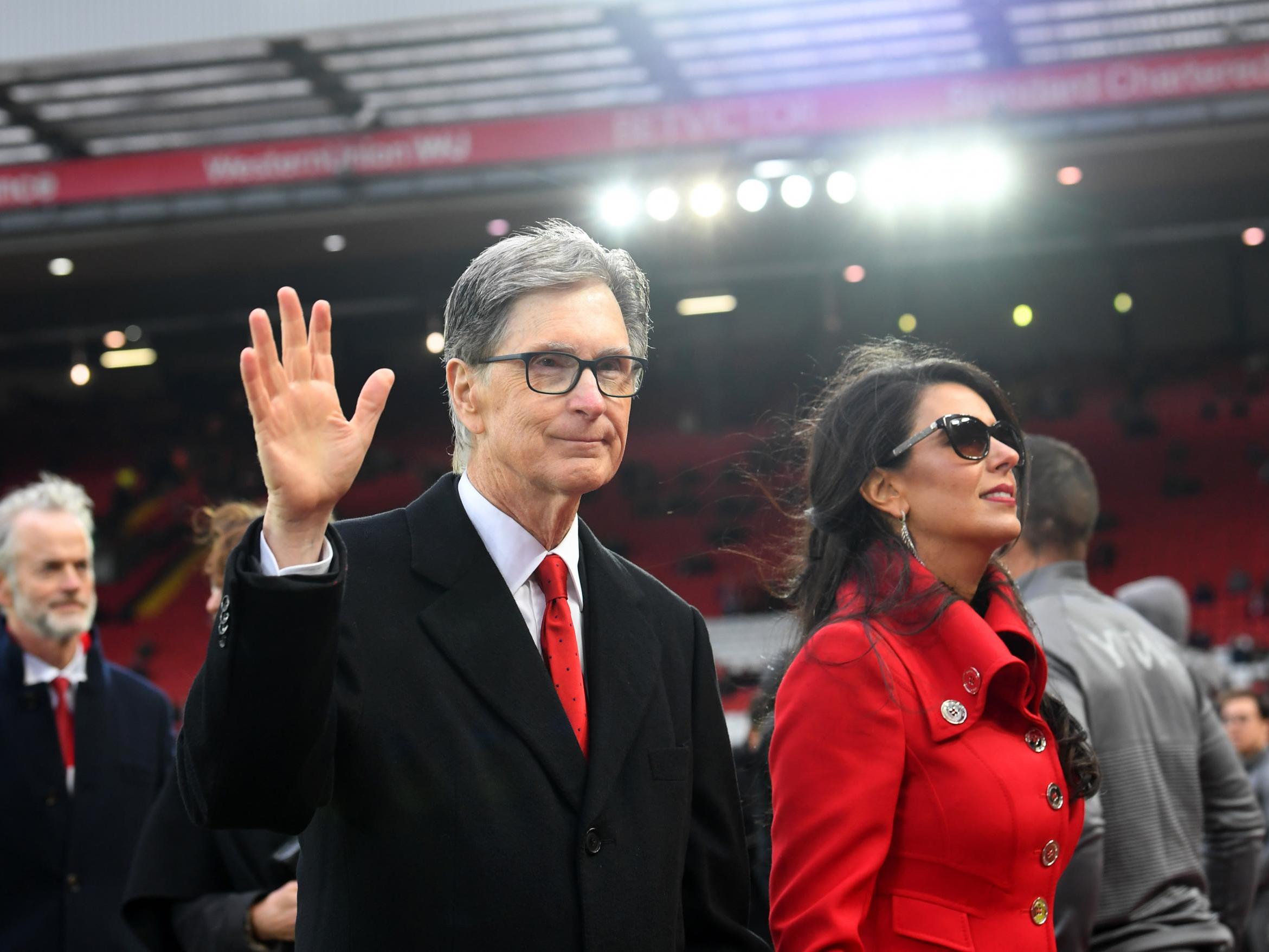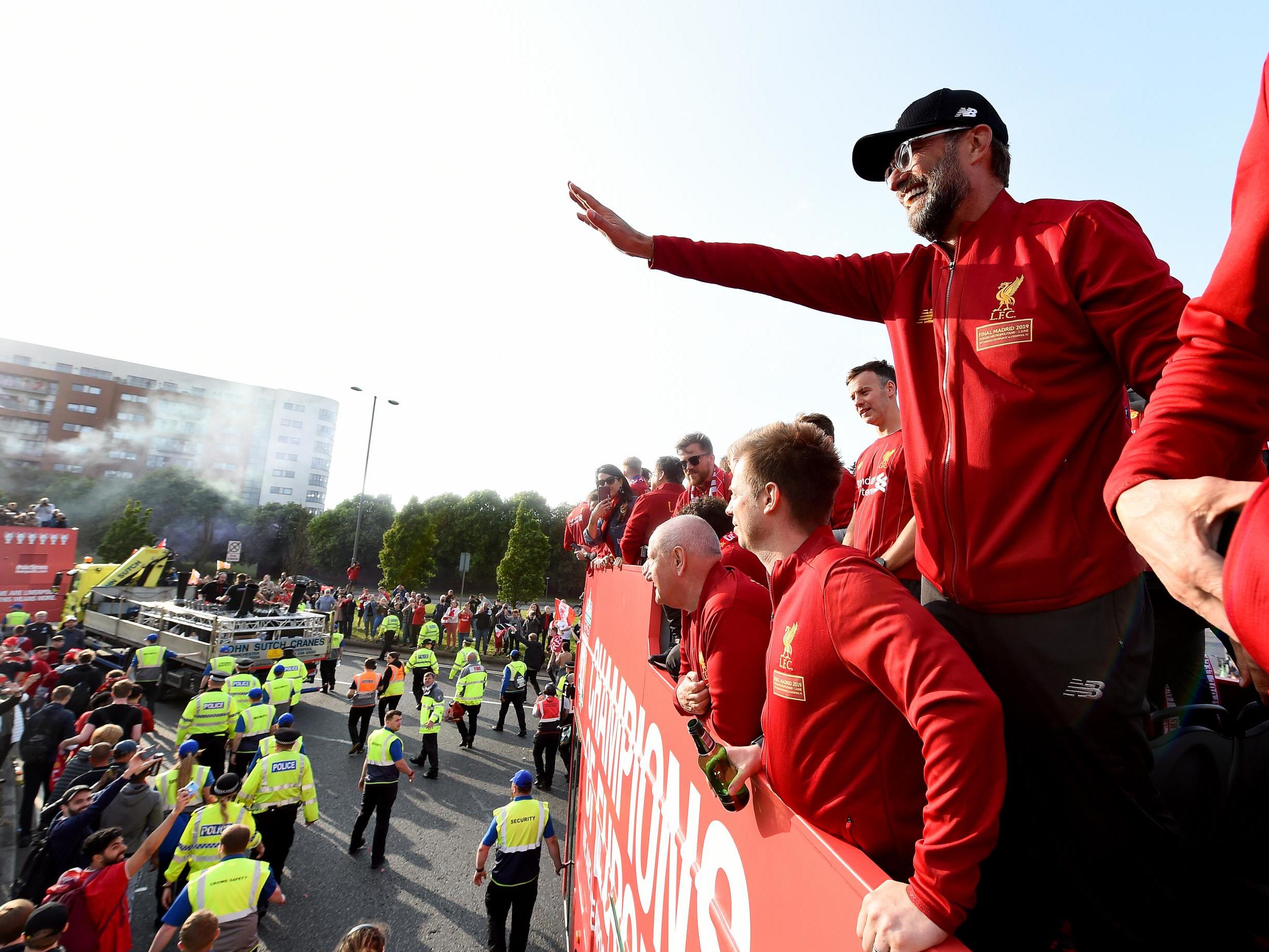Liverpool, the long road back, and what comes next as FSG look to the future
Liverpool is now an elite club again, driving greater revenues than at any point in its history. It is in a healthier position than ever in a financial sense and can choose which direction it wishes to take
Out in the northern reaches of Madrid’s Paseo de la Castellana, following their European victory the night before, Liverpool’s team bus bypassed the Santiago Bernabeu just a mile or so to the south – the stadium where in 2014 it had all started to really go wrong for Brendan Rodgers. He had selected a weak side and paid for it, losing the trust of some key players who believed he had robbed them of the chance to perform at one of the world’s great football arenas in order to shield himself from criticism because, well, a weakened Liverpool side was never going to beat Real Madrid was it?
Jordan Henderson was left on the bench that night and did not get on, and though he was not necessarily one of those key players at the time, the whiplash of disappointment stung – and he has not since had the chance to go back.
There were so many little things about the final being held in Madrid, indeed, which offer a reminder of where Liverpool have been, the journey they have been on, which contrasts with where they are now. Madrid was, of course, the birthplace of Fernando Torres – once Liverpool’s hero, whose agitation for a move away in 2011 reflected just how far Liverpool had fallen in those first months under Fenway Sports Group. It is true that Torres had loved Liverpool but his stance showed how easy it was for anyone to fall out of love with a club which began that season with banks registering their concerns about Liverpool’s financial capability to finish a campaign.
Four years later, Jurgen Klopp was appointed Liverpool’s manager and his first game in charge happened to be their opponents in the final, Spurs away. The day before, Danny Ings suffered a terrible injury and Klopp’s forward options were limited. Divock Origi would score decisively for Liverpool in Madrid but he had not started his Anfield career at all well and he was quickly being forgotten about. When Klopp was asked by a journalist that Friday afternoon in 2015 what he planned to do, Klopp responded with some hostility, asking: “do you know Origi?” rolling his tongue on the R for emphasis, hanging over the journalist in question for impact.
Klopp wanted to sign Origi for Dortmund and really believed in him, more so than perhaps the player believed in himself. The Belgian is intelligent and introspective and sometimes thinks too much. Klopp wanted him to trust his instincts and in Madrid – as against Everton, Newcastle United and Barcelona – he was rewarded for persevering with him in a sport where so many other managers would probably have tossed him aside.
In 2010, Liverpool needed to be put back together. The club’s plight under Tom Hicks and George Gillett was well covered by the media but outsiders may have looked at it and still seen Liverpool for what it had been rather than what it had become. It was not just another soap opera that would be solved overnight and it would take more than huge persistent investment from a bottomless pit of resources. Liverpool had been at civil war and the depth of the problems were deep rooted. There would be more mistakes before the healing process could really begin. It had lost its institutional memory and relied too much on the presence of Steven Gerrard and Jamie Carragher for identity, two Liverpudlians at the end of their careers.
It is significant that accompanying Klopp on the front two seats of the plane on the way back to Merseyside from Madrid, and then the bus that took the squad from John Lennon Airport to the Mather Avenue police training academy where the celebratory parade began yesterday, was Mike Gordon, the businessman from Milwaukee who was dressed modestly in a t-shirt and a cap.
In the spring of 2012, Gordon took a call from John W Henry, Liverpool’s principal owner, inviting him around to his house in the Brookline area of Boston, Massachusetts. The first 18 months of Fenway’s reign at Anfield had not gone to plan. Though Andy Carroll would score for Liverpool in an FA Cup semi-final against Everton - the day after the man that sanctioned the deal which brought him to the club was sacked - it was believed that Carroll had been a failure and there was scepticism about some of the other deals Damien Comolli had sanctioned the previous summer as well – including Henderson.

Liverpool’s chairman Tom Werner lives in Los Angeles but he was also at the meeting where three key matters were broached for the first time: Comolli should go, Kenny Dalglish’s position as manager would be under review, and Gordon – previously a low-key member of the investment firm – would take more of an active role in the day-to-day running of the club, though he would still live in Boston with his young family.
Fenway remain fundamentally absentee owners. Yet in Gordon, they have someone who is very hands on from afar. There are those inside Liverpool who believe that decades from now, Gordon’s subtle role in the club’s resurgence will be marked by the building of a statue outside Anfield.
Amongst his strengths is communication and trust. Gordon likes to challenge his own view. He speaks to people at different levels even if an issue isn’t covered in their field of work. Football club owners have historically done whatever they want. Gordon is different because he does not do what he wants. He has a process to get towards a conclusion of what he thinks might be right. This was the process when he and Ian Ayre oversaw the redevelopment of the main stand, as well as the appointment of Klopp. When the first call was made to Klopp’s representatives nearly four years ago, it was Gordon at the other end of the line telling Marc Kosicke, Klopp’s agent, that he’d always wanted him and that a unique challenge presented itself at Anfield. If that conversation doesn’t happen and then maybe Klopp doesn’t arrive and if the relationship doesn’t develop in the way it has, then maybe Liverpool don’t sit now as one – if not the – best team in Europe.
For Klopp, winning the Champions League represents the greatest achievement of his football career and over the next few months he will sign a new long-term contract which will tie him to Liverpool for years to come. To understand what it means for Liverpool as a club and a supporter base to emerge as European champions for a sixth time, see what happened yesterday when three-quarters of a million people lined the streets of the city to welcome the team home. Religious festivals have had less intensity. Traffic lights, speed cameras, road signs, cherry pickers, derelict buildings and even cranes were used to get a better vantage point.

It was the first parade of the Fenway era and it was important that Gordon, Henry and Werner were able to see for the first time what achievement really looks like and what Liverpool means to so many people, certainly in the city where a raw appetite remains.
David Moores, Liverpool’s owner, and Rick Parry, the chief executive, were lampooned for not capitalising on the club’s popularity in 2005 after what happened in Istanbul, but to some extent that criticism was unfair because Moores had already recognised he did not have the resources or even the vision to push Liverpool forward. He was already willing to sell and prospective buyers with deeper pockets knew that, as well as fans. He would not be able to increase the size of the ground and compete on the pitch at the same time.
The challenge of increasing the capacity of Anfield again while offering affordable ticket prices remains complex and for Fenway – Gordon particularly – there is much to consider from here. Yet Liverpool is now an elite club again, driving greater revenues than at any point in its history. It is in a healthier position than ever in a financial sense and can choose which direction it wishes to take. Klopp has helped unite Liverpool and reconstitute its fractured state. If the will is really there, the mood could get even better.
Join our commenting forum
Join thought-provoking conversations, follow other Independent readers and see their replies
Comments
Bookmark popover
Removed from bookmarks